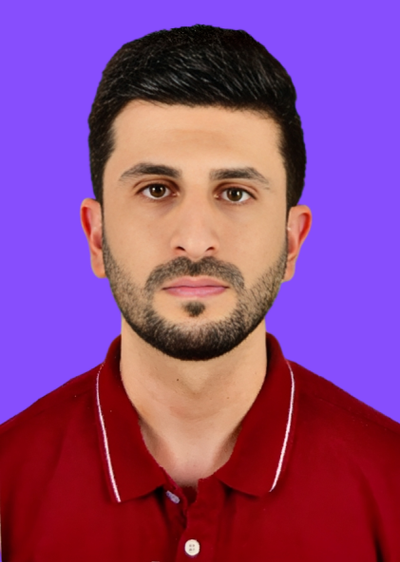Shawahna, Ahmad I. A.
Ph.D. in Computer Engineering
"The more you know, the more you realize you know nothing" - Socrates
About
Ahmad Shawahna was born in Jenin, Palestine. He received the Ph.D. and master’s degrees in computer engineering from King Fahd University of Petroleum and Minerals (KFUPM), Saudi Arabia, in 2022 and 2016, respectively. He also obtained the bachelor’s degree in computer engineering from An-Najah National University, Palestine, in 2012.
He is currently a research scientist with the Center for Communications and Information Technology Research, Research Institute, KFUPM. He also worked for the computer engineering department at KFUPM as a teaching assistant. Additionally, he worked for Art Technologies in Palestine as a software engineer (mobile applications developer). Finally, he worked in web application development at Dot Learning Center, Palestine, in 2011.
His research interests include digital design with Verilog, machine learning, hardware accelerators, FPGAs, computer vision, and quantization. He has published several articles in high-quality journals and international conferences.
He is currently a research scientist with the Center for Communications and Information Technology Research, Research Institute, KFUPM. He also worked for the computer engineering department at KFUPM as a teaching assistant. Additionally, he worked for Art Technologies in Palestine as a software engineer (mobile applications developer). Finally, he worked in web application development at Dot Learning Center, Palestine, in 2011.
His research interests include digital design with Verilog, machine learning, hardware accelerators, FPGAs, computer vision, and quantization. He has published several articles in high-quality journals and international conferences.

Without careful implementation of today’s complex deep neural network models,
The design may not fit the target edge device due to limited computational and logical resources.

RESEARCH
To date, my work has provided a comprehensive review of recent existing techniques and architectures for implementing deep neural networks (DNNs) on FPGAs and provided recommendations for future directions that will simplify the use of FPGA-based accelerators and enhance their performance. I have also developed an optimized convolutional layer processor (CLP) and an accompanying metaheuristic-based algorithm for designing an FPGA-based multi-CLP accelerator, showing a significant improvement in performance (1.31x - 2.37x higher throughput than the state-of-the-art single-/multi-CLP approaches). I further showed that different CNN layers have different properties related to the quantization process. Therefore, I have worked on heterogeneously reducing the bit-precision level for the activations and weights of pre-trained models to low-precision integer numbers, lowering the overall memory requirements of several widely used benchmark architectures by 6.44x – 10.36x without noticeable accuracy drop. Additionally, I explored models that could automatically learn the quantization level of every weight and activation tensor at training time, directly fulfilling the memory constraints of a particular target device while learning model parameters to classify images in 51.69 ms.
I have continually demonstrated a record of research and publishing excellence, including the
collaborative publication of several articles in top-tier academic journals with over 465 citations
Publications
Education
Doctor of Philosophy
Computer Engineering. King Fahd University of Petroleum and Minerals, Dhahran - Saudi Arabia. September 18, 2016 - January 05, 2023. Excellent (GPA: 3.69/4.0)
Learn More12/29/2022Master of Science
Computer Engineering. King Fahd University of Petroleum and Minerals, Dhahran - Saudi Arabia. January 26, 2013 - May 24, 2016. Excellent (GPA: 3.72/4.0)
Learn More05/23/2016Bachelor of Science
Computer Engineering. An-Najah National University, Nablus - Palestine. August 18, 2007 - May 23, 2012. Very Good (GPA: 80.3%)
Learn More05/11/2012General Secondary Education
Scientific Stream. Silat Al-Harithiya Secondary School, Jenin - Palestine. August 26, 2001 - August 14, 2007. Excellent (GPA: 95.7%)
05/17/2007Contact
- Dhahran Blvd, King Fahd University of Petroleum and Minerals, Dhahran 34463 31261, Saudi Arabia
